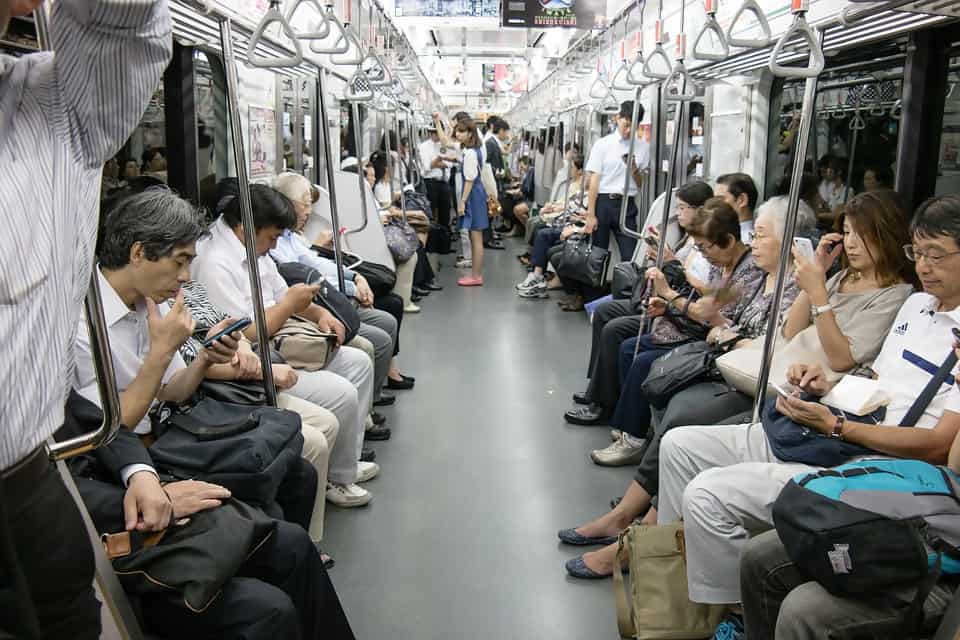
Japan is at the top of many people’s travel bucketlists because of its breathtaking natural landscapes, captivating ancient and modern sites and attractions, rich and unique culture and traditions, delicious cuisine, and polite and friendly people. Every year, it welcomes several millions of people from around the world, with more than 31 million international tourists recorded just in 2018.
If you are looking to spend your next vacation in Japan, here are some important things that you have to know before your trip to make the most out of your Japan adventure:
Japan is one of the safest countries in the world.
Have you always dreamed of traveling the world solo but are hesitant because of all the negative things that you read on the news? Are you a woman and worried about the dangers that you may face on the road in a foreign country if you are alone?
Over the last 10 years, Japan has ranked in the top 10 of the Global Peace Index, along with Iceland, New Zealand, Austria, Denmark, Canada, Portugal, Czech Republic, Ireland, and Singapore. This means that, compared to the rest of the world, it has one of the highest levels of peace and harmony, and lowest crime rates, violence, and domestic and international conflicts.
In Japan, if you lose your wallet or forget your bag on a train, there is a great chance that you will get them back. If you leave your phone on a table at a restaurant to go to the toilet, you will very likely still see it there untouched when you come back minutes later. If you are out late at night, the risk of getting mugged on the streets as you walk back to your hotel is extremely small.
Bring cash.
Unlike many Western countries, credit cards are not as widely used in Japan. While the number of restaurants, stores, shops, hotels, and other business establishments that accept cards in Japan has consistently increased each year, there are still a lot of places that only accept cash.
In many shrines, temples, hostels, guest houses, small cafes and restaurants, cash is the only acceptable method of payment, so you might not be able to purchase entrance tickets, pay for your room, or order food if you only have a credit card with you.
To avoid awkward situations and prevent ruining your plans, you should make sure to have cash with you at all times. You can buy Japanese yen from your bank at home before your trip or withdraw Japanese yen from ATMs in Japan using your bank cards.
Subway and metro trains do not operate 24/7.
If one of the things that you want to do in Japan is enjoy the nightlife, you should know that subways and metros in Tokyo, Osaka, Kyoto, and other Japanese cities do not run 24 hours a day, 7 days a week. Usually, they halt operation at around midnight and resume at around five in the morning. So, if you miss the last train for the day, you might have to walk several kilometers or spend thousands of yen on a taxi ride back to your hotel.
To avoid the inconvenience, try to find an accommodation that is close to where you plan to pub crawl or go clubbing, a place that is 15 minutes or fewer away on foot. Or, if you want some more uniquely-Japan experiences, you can head to a 24-hour karaoke or spend the night at a manga kissa or internet café.
There is a stigma against tattoos.
In many parts of the world, tattoos are considered a form of art, a way of expressing yourself. However, in Japan, they have a negative image as they are associated with gangs, i.e. the Yakuza.
If you go to Japan and you have tattoos, you may be refused entry to some establishments due to it. For example, you might not be able to enjoy a relaxing and therapeutic bath in a traditional Japanese hot spring or onsen, as many have strict rules in place that prohibit tattooed individuals from using their facilities.
Fortunately, nowadays, the number of places that are more welcoming to tattooed people, especially international tourists, is increasing, and it is not that difficult to find onsen that do not mind having tattooed guests in their premises.
You do not need to tip.
In Japan, tipping is not expected from customers. At restaurants, bars, and other places, you only have to pay for the goods and services that you purchased. You are not required to give tips to your waiter, bartender, bell boy, and others.
If you leave a tip, you will only cause confusion. The Japanese people will think that you just miscalculated if you pay more than the amount that is printed on your receipt. They will even run after you to give any extra money back to you.
Do not be loud in public.
The Japanese people value personal space and privacy, so they try to be as considerate as they can when in public places.
If you are on a train, you should avoid talking or laughing loudly with your companions, as you will only disturb and bother the other passengers. If you have to make an important call, make sure to keep your voice at a low volume. If you want to listen to music, wear earphones.
There are designated smoking areas.
If you are a smoker, you have to know that you cannot just smoke wherever you feel like in Japan. You have to do it at a designated smoking area that is usually found inside train stations, outside train stations, outside department stores, and others. At restaurants, you should ask for a table in their smoking area to be able to freely smoke.
People who are caught smoking at non-smoking areas in Japan are slapped with fines — 2,000 yen to 5,000 yen in Tokyo, 1,000 yen in Kyoto, and 1,000 yen in Osaka.